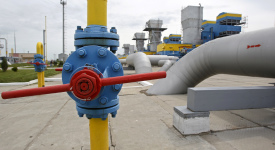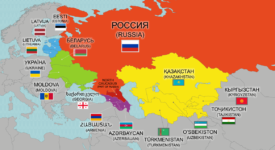The European Union called on Azerbaijan to release detained opposition leaders and a journalist allegedly abducted in Georgia. Azerbaijan has been recently attracting international attention due to its crackdown on dissenters including investigative journalist Afgan Mukhtarli and opposition politician Gozel Bayramli. The EU commented on this development by saying that “a review by Azerbaijan of any and all cases of incarceration related to the exercise of fundamental rights, including the freedom of expression, and immediate release (of) all of those concerned is urgent”. The European External Action Service (EEAS) added that such action would be in line with Azerbaijan’s international commitments. The EU also said that it expects that “due process of law is respected, as well as the civil and political rights of citizens and those residing legally in states other than their own”.
While the EU did not name any names, the reference is clear to pro-opposition journalist Afghan Mukhtarli who was imprisoned last week on the charges of illegal border crossing and smuggling money after he had returned to his home country following a purported kidnapping. Mr. Mukhtarli lived in a self-imposed exile in neighboring Georgia since 2015 after he had investigated Azerbaijan’s President Ilham Aliyev, who has been in the office since 2003. Georgia announced that it would investigate the alleged kidnapping, although Tbilisi denies it was involved in the case. Mr. Mukhtarli claims that he was abducted in Tbilisi by Georgian-speaking men who later handed him to Azerbaijani security forces.
According to the Human Rights Watch, Azerbaijan keeps on waging a vicious crackdown on critics, opponents and dissenting voices. “The space for independent activism, critical journalism, and opposition political activity has been virtually extinguished by the arrests and convictions of many activists, human rights defenders, and journalists, as well as by laws and regulations restricting the activities of independent groups and their ability to secure funding,” Human Rights Watch reports.







